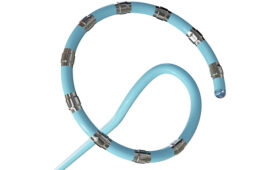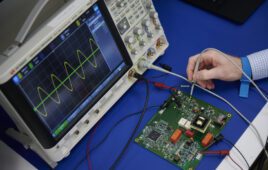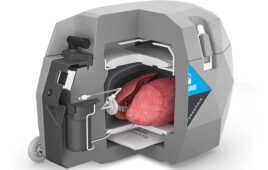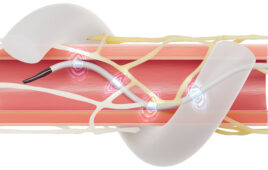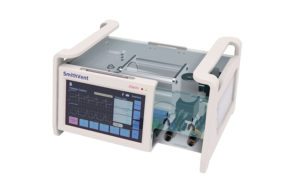
(Image courtesy of the CoVent-19 Challenge)
A team of Smith College engineering alumnae, staff and faculty has won the CoVent-19 Challenge to design a rapidly deployable ventilator to address shortages caused by the COVID-19 pandemic, particularly in developing countries.
A dozen anesthesiology resident physicians from Massachusetts General Hospital kicked off the public challenge April 1, attracting 200 entries. The 30-person team from the Northampton, Mass., college took a winning design from concept through working prototype. The next step could be a final product for regulatory approval in Nigeria, one of the countries that have been talking with the CoVent-19 Challenge organizers.
The SmithVent design, which is one-tenth the cost of traditional ventilators, combines economical proportional solenoid valve technology with an air-oxygen mixing chamber to meet the full set of requirements for COVID-19 ventilation, according to the contest organizers. The team relied primarily on readily available, off-the-shelf components, which reduced custom machining and improved compatibility with other medical equipment. The enclosure, ISO fittings and mounting blocks can be produced using FDM or stereolithography 3D printers. The design is open source for anyone to use and improve.
The timeline was intense, according to Smith College engineering professor Susannah Howe.
“To a person, we came into this not knowing anything about ventilators,” she said in a news release. “In two months we went from knowing nothing to having a functional prototype. That’s just crazy. To see that trajectory in such a short period of time, with people who are volunteering their time on top of their other jobs is amazing and heartwarming and so rewarding.”
Second place went to the InVent Pneumatic Ventilator submitted by a San Francisco-based team comprised of fuseproject, a design and innovation firm founded by Swiss designer Yves Behar, and Cionic, a medical device technology start-up. The third-place prototype, RespiraWorks, was developed by a global team of dozens of engineers, healthcare workers and other professionals with a focus on developing countries and low-resource communities.
Dr. Richard Boyer, founder and director of the CoVent-19 Challenge, said when they began planning in March, it was unclear if there would be enough ventilators even in the United States to treat pandemic patients.
“Our focus has since shifted to developing countries, where we’re seeing high death rates and limited resources to deal with the ravages of this new disease,” he said. “The test bed we developed gives us a lot of confidence in the performance of the winning prototype, and frankly there is probably tremendous value in getting other finalist designs out into the world too.”
The three winners will receive a total of $10,000 in credits for 3D printing from Stratasys (NSDQ:SSYS), which also provided access to free 3D printing and a team of three application engineers for the seven finalist teams building their working prototypes. Other sponsors include Ximedica, Valispace, HackFund and Yelling Mule.

